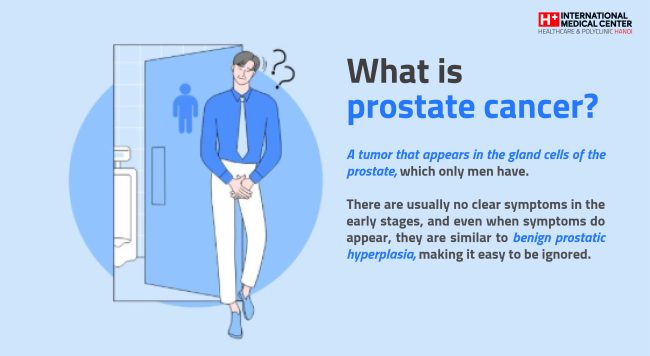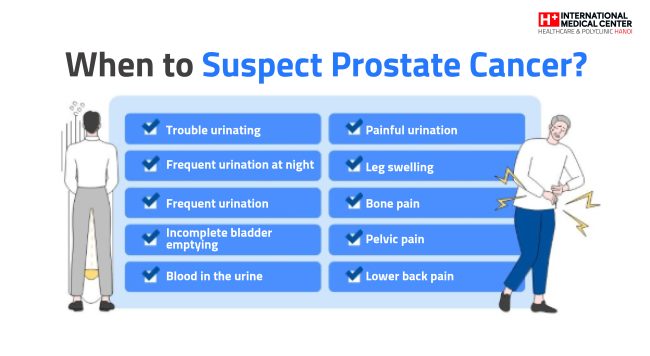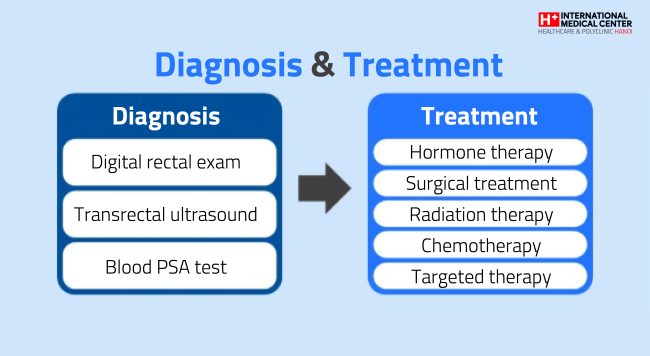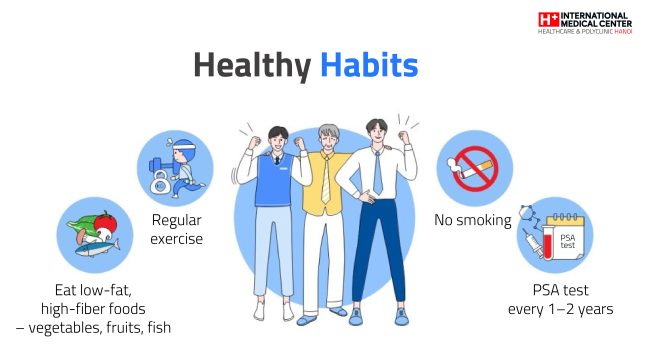Prostate cancer is often referred to as the “good cancer” due to its favorable prognosis, especially in the early stages. However, if left untreated and allowed to spread after stage 3, it can become dangerous. Understanding the signs and risk factors for prostate cancer and seeking early diagnosis are critical for improving outcomes.
What is Prostate Cancer?
Prostate cancer forms in the prostate, a gland only found in men. Initially, there may be no noticeable symptoms, or the symptoms might be mistaken for benign prostatic hyperplasia (BPH), making it easy to ignore.
What Causes Prostate Cancer?
Several factors contribute to the risk of developing prostate cancer, including:
- Aging
- Genetics (family history)
- Obesity
- Smoking
- Male hormones
- Westernized diet, particularly high in red meat
Signs You Shouldn’t Ignore
Although prostate cancer often presents without symptoms in its early stages, it’s important to watch for the following signs:
- Difficulty urinating
- Frequent or urgent need to urinate, especially at night
- Painful urination
- Blood in urine
- Swelling in the legs
- Pain in bones, pelvis, or lower back
Why Early Detection is Key
When prostate cancer is detected in the early stages (Stage 1 or 2), the 5-year survival rate is as high as 99%. However, once cancer spreads to surrounding bones or lymph nodes, the survival rate drops to 44.5%, and the risk of death increases.
- Annual screenings are recommended for men over 50, even if no symptoms are present.
- If you have a family history of prostate cancer, you should begin screenings around age 40.
How is Prostate Cancer Diagnosed and Treated?
Diagnosis:
- Digital rectal exam (DRE)
- Transrectal ultrasound (TRUS)
- PSA (Prostate-Specific Antigen) blood test
Treatment: Treatment options vary depending on the stage, location, and other factors, but may include:
- Hormone therapy
- Surgery
- Radiation therapy
- Chemotherapy
- Targeted therapy
Each treatment plan is personalized based on the patient’s unique condition.
Preventing Prostate Cancer: Healthy Habits
While prostate cancer cannot always be prevented, there are steps you can take to reduce your risk:
- Eat a low-fat, high-fiber diet with plenty of vegetables, fruits, and fish.
- Exercise regularly to maintain a healthy weight.
- Quit smoking to lower your overall cancer risk.
- Get a PSA test every 1–2 years as part of your routine health check-ups.
Don’t wait for symptoms to appear! Prostate cancer can often be treated successfully if caught early. By staying proactive with screenings and maintaining a healthy lifestyle, you can significantly reduce your risk and improve your chances of successful treatment.
 +84 24-7306-9889
+84 24-7306-9889  Booking
Booking 






